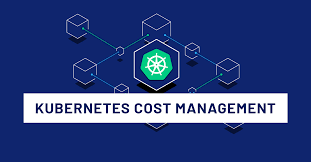
Kubernetes Cost Management
Kubernetes, known as K8s, is an open-source container orchestration system for automating software scaling, deployment, and management. Google designed it, and has become a game-changer for creating scalable and resilient applications.
Kubernetes helps to streamline the operational process without any interruption in the process. Thus, it is quite popular among business owners. However, with increasing demand, the price of Kubernetes is relatively high. Thus, it becomes challenging to manage Kubernetes costs due to space storage, networking, infrastructure, and more.
In this blog, we will discuss tips and best practices for Kubernetes cost management that help you optimize Kubernetes cost.
8 Tips to Improve Kubernetes Cost Management Efficiently
The following 8 tips help your business to improve cost management, optimize resources precisely, and ensure efficient savings in your Kubernetes environment.
- Monitor Utilization of Resources
To identify any bottlenecks in your Kubernetes clusters, you must monitor the utilization of resources often. Leveraging tools allow you to analyze metrics like memory usage, CPU, network utilization, and storage space.
Also, by monitoring, you can identify the necessary resources and observe which resources are over-provisioned or underutilized. As a result, you can make informed decisions with proper resource allocation.
- Utilize Spot Instance
Kubernetes enables you to use spot instances, which helps to offer compute resources at affordable prices. Also, it is an essential factor in streamlining the system process as it comes with the caveat, which helps to modify changes rapidly.
Utilizing spot instances, you can reduce workloads, which turns beneficial for cost efficiency. In addition, using spot instances can decrease overall infrastructure costs while maintaining high availability.
- Implement Cost Management Tools
Cost management tools designed explicitly for Kubernetes environments can help you manage costs efficiently. Cost tools, such as Kubecost, Anodot, and more, provide insight into the cost.
Additionally, it will help you understand cut down resource utilization and optimize opportunities. By employing Kubernetes cost management tools, you can analyze patterns and identify uncertainties, which help you plan cost strategies.
- Optimizing Networking
Networking is one of the crucial elements of Kubernetes clusters. Optimizing the network ingress and egress costs will benefit your Kubernetes environment. Paying attention to them will help you understand appropriate Kubernetes cost management.
Also, it helps to implement efficient load balancing, optimize content delivery networks (CDNs), and practice network routing. Decreasing unnecessary data transfers and optimizing network traffic lower the cost associated with networking.
- Adopt Serverless Architecture
Opting for serverless architecture can enhance your Kubernetes environments. Implementing serverless frameworks, such as AWS Fargate and Knative, removes the underlying infrastructure management.
Hence, it solely focuses on the application and optimizes cost by allocating resources accurately. The system will know when to use substantial resources and when to eliminate them. Thus, resulting in cost savings and boosting operational processes.
- Optimize Container Images
By optimizing container images, you can reduce their storage size, which results in improved performance. It will help to decrease the number of layers and eliminate unnecessary dependencies.
With optimization, you can create small images that consume limited resources, less memory usage, reduce CPU, and increase deployment speed. Also, with less resource consumption, you can save storage.
- Utilize Cluster Federation
With numerous Kubernetes clusters, you should consider employing cluster federation. It enables you to assign workload across different clusters based on cost, performance, and user proximity.
You can optimize costs and workloads by distributing clusters at a precise level. It helps to save resources and leverage locations. Leveraging appropriate cluster federation, businesses can distribute workload strategically per performance requirements.
- Set resource limits
Kubernetes enables you to set limits on resources and requests for individual containers. By defining resources, you can ensure containers operate efficiently and prevent single containers from monopolizing cluster resources.
As a result, it helps to implement adequate resources and reduce overprovisioning. Additionally, with fair resource sharing, you can optimize costs and avoid unnecessary allocation of resources.
Best Practices of Kubernetes Cost Management
Here are the best practices for effectively managing Kubernetes costs and spending in environments and resources.
- Adjust and monitor resource allocation continuously so it prevents overprovisioning.
- Implement non-critical workloads on the spot instances to avail benefits of fewer costs.
- Utilize Horizontal Pod autoscaling to automate resources, ensuring optimal utilization and preventing irrelevant costs.
- Implement robust monitoring to identify the resource-intensive workloads and uncover cost optimization.
- Analyze reports frequently, so you can detect the cost outliers and explore the area of high expenditure.
Conclusion
Kubernetes is a highly adopted container orchestration system that boosts business productivity by streamlining the process with its automation deployment. Deploying Kubernetes eases your application with reliability and scalability.
However, with multiple hosts, Kubernetes is expensive. Thus, following these 8 tips and best practices of Kubernetes cost management, you can achieve cost efficiency and enhance its environment, infrastructure, and cluster. You can Hire DevOps engineer to streamline your Kubernetes operations; it will also manage your cost.
Author Bio:
Chandresh Patel is a CEO, Agile coach, and founder of Bacancy Technology. His truly entrepreneurial spirit, skillful expertise, and extensive knowledge in Agile software development services have helped the organization to achieve new heights of success. Chandresh is fronting the organization into global markets in a systematic, innovative, and collaborative way to fulfill custom software development needs and provide optimum quality.
Write and Win: Participate in Creative writing Contest & International Essay Contest and win fabulous prizes.


